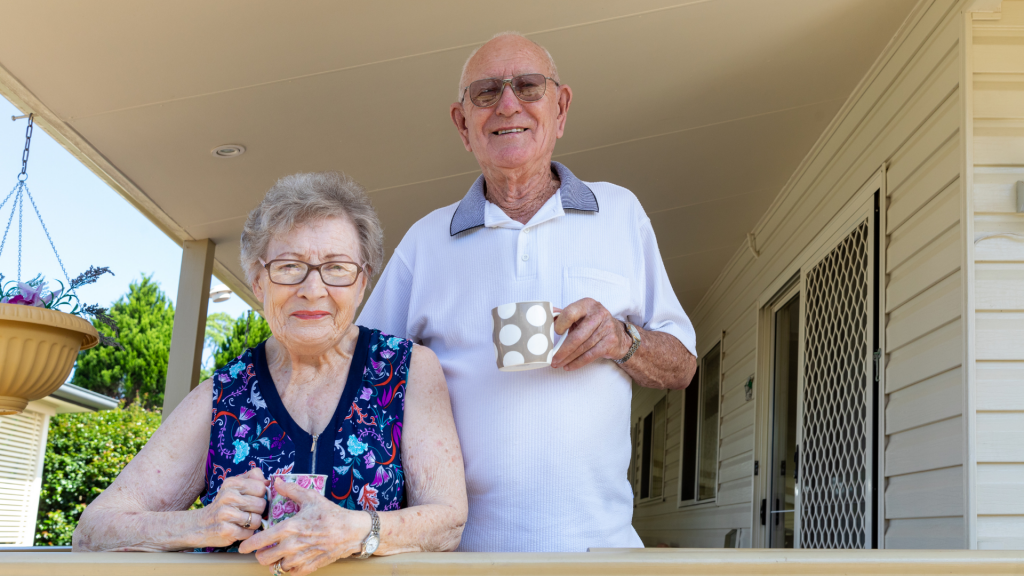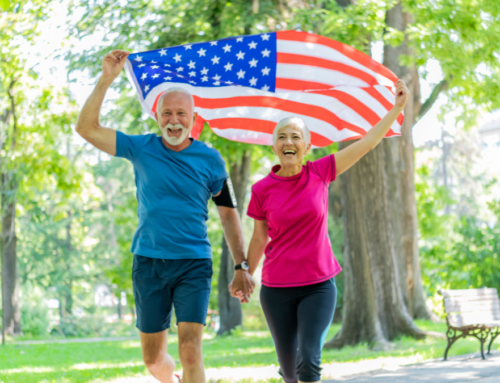
Encouraging Independence in Seniors
In our last post, we were talking about how Seniors Fear Loss on Many Levels. One of the fears that seniors face is the loss of independence. This is one of the biggest challenges that seniors face, and it manifests itself in many different forms. For example:
How loss of independence manifests itself:
Loss of Physical independence
The clearest indication of losing one’s independence is when you are physically unable to do everyday tasks like driving, remembering to clean the kitchen or walking around in general. Here are some physical indicators you or your loved one(s) could experience:
- Loss of sight or hearing
- Difficulty walking
- Difficulty performing daily tasks and chores
- Becoming less flexible
- Inability to lift objects or open jars
- General decrease in physical energy
- Emotional independence
Loss of Emotional Independence is another risk. Here are some indicators that this could be happening:
- Increased irritability and anger
- Unexplained guilt or feeling helpless
- Reluctance to ask for help
- Increased moments of confusion
- Social independence
A third way of losing one’s independence is social. This could make the affected individual less likely to enjoy social activities with friends and family.
Here are some warning signs:
- Loss of interest in social activities like sports or parties
- Forgetting appointments
- No longer keeping regularly scheduled social engagements
- Not leaving the house, even for errands
The Importance of Independence for Seniors
Loss of independence can be discouraging to older adults. They have spent their entire lives living independently, working jobs, raising families, and making decisions. Independence is sometimes the only thing seniors may feel they can control as certain aspects of their life change with age. Additionally, maintaining independence promotes a sense of achievement that for many seniors generates a great sense of self-worth and well-being.
The natural effects of aging can sometimes make independent living harder than it once was. Difficulties with mobility, behavioral health conditions such as isolation and loneliness, and financial strains are just some of the contributors to a loss of independence in aging adults.
While we cannot avoid some barriers to independence, we can take the time to understand the importance of independence in seniors and look for ways to increase opportunities for independent living. The following are some ways to help empower older adults to live independent (or at least more independent) lives.
5 Steps to helping seniors retain their independence
- Invest in voice-activated technology: There are many voice-activated home devices on the market, like those made by Amazon (Alexa) and Google (Google Home). These devices are a great resource for people with low vision, difficulty with fine motor tasks, mobility challenges, or other limitations. Voice-activated devices can do a lot of things, including:
-
- Play music
- Operate the television
- Lock and unlock doors
- Control the thermostat
- Control lights
- Tell the time, date, and weather
- Make phone calls
Smart devices empower some people to live independently for longer. They allow people who can’t use smartphones or computers to access information. Plus, new uses for these technologies come out all the time.
- Find them a weekly activity: Older retired adults don’t get out of the house as often as people who are still in the workforce. They can become lonely and bored. Many elders report feeling isolated, which can lead to depression. Hobbies in the community are a great way to prevent isolation. Most communities have senior centers or senior-oriented events. See our post, 25 Fun Activities for Seniors, for some ideas.
- Encourage physical activity and healthy habits: Exercise is good for the body and mind. Regular physical activity can help prevent Alzheimer’s and dementia plus improve strength and mobility. Daily walks, exercise classes, and day trips are all great options. They all encourage movement and will get your loved one out of the house. For ideas that will help with this, visit 10 Essential Daily Health Tips for Seniors.
- Make clothes and personal items easy to access: If your loved one needs support getting dressed, they can still choose what to wear. Open wardrobes allow all clothes to be visible. This allows your loved one to see their options and make choices. If you don’t have an open wardrobe, present a few choices for your loved one to choose from.Do the same for other personal items. Make sure your loved one can see or easily access things such as jewelry, money, and other items they like to have on hand.It’s also helpful to make the clothes easy to put on. If your loved one can pull up their pants but has difficulty with buttons or zippers, consider pants with elastic waistbands. Some things are easier to put on than others. If your loved one is more independent with certain clothing styles, it is worth investing in them. Getting dressed with less support may give your loved one a confidence boost as they start their day.
- Keep an open dialogue with your loved one: Some older adults don’t like to admit when they need help. If you’re encouraging independence, check in often. Make sure your loved one doesn’t need more support than they’re currently receiving. Take time to notice how they’re doing. Offer different levels of support so they can choose what they’re comfortable with.
For example, maybe your mom is comfortable sweeping her kitchen, but mopping makes her nervous because the floors are slippery. If you keep an open dialogue, she will hopefully feel comfortable sharing these details with you. This way you can help while still supporting independence.
You’ll see several benefits if you show your loved one that you value their independence. Your loved one will be less likely to experience depression. They will be more likely to find meaning and joy in their daily life and will trust you to support them. As a caregiver, you’ll put less pressure on yourself to do everything. Enjoy a more open and empowering relationship with the person you support.
In Conclusion
It is vitally important to respect a seniors dignity and independence by allowing them to do the tasks they’re still capable of completing. Seniors want to remain independent for as long as they possibly can. By being patient, your older loved ones will be much happier, confident, healthier, and will be more appreciative of your assistance. They’ll also be more likely to ask for help when they really need it.
If you would like to discuss your unique situation, Silver Companions can help. We are happy to have a conversation with you about any challenges you’re facing, or questions you have regarding your aging parent or loved one. There is never any cost or obligation for a consultation, and we guarantee you will benefit from the conversation. You can email us at info@SilverCompanions.com, call us at (678) 494-8129, or simply contact us by filling out this form.






The search for the right independent living facility can be tough. Thanks for sharing.